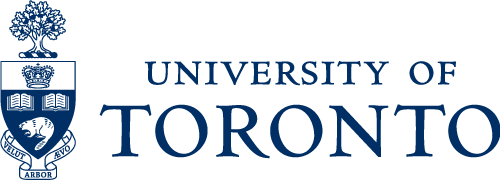Program Overview and Facilitators’ Guide
The aim of the Data-Driven Design Network program framework is to develop models for use of data-informed curriculum planning at the course/instructor level and to increase capacity in this domain through a peer-based, collaborative faculty development initiative. Through the process described below, instructors are encouraged to use data from learning management systems, course evaluation, course gradebooks and other sources related to learner activity to better inform the design of instructional environments. The program has four main components:
- A series of four workshops for the instructor network and educational technology professionals supporting their program area.
- Consultations with educational data experts from the teaching and learning centre between workshops (2 short consultations for each instructor).
- Creation of a project website featuring individual instructor project outcomes, profiling their work in a templated summary format.
- A capstone event, at which instructors present their work in lightning round format, with active learning breakouts between sets of presentations in workshop format.
An outline of the workshop program and participant learning outcomes is available below. Materials used in the Data-Driven Design Network project included in this collection are available for use and adaptation by other facilitators under a CC-BY licence.
You can download all materials according to the workshop session (below).
This project has been funded by eCampusOntario.
Workshop #1: Community Network Orientation
At the first workshop, the instructor network meets for the first time, along with educational technology support team members and the project facilitators. It is an orientation session and serves to prime instructors to conceptualize small scale Data-Driven Design projects within the context of courses they teach.
The outcomes of the day are to:
-
– Describe their role in the project and in our community network
– Support a culture of sharing and learning together
– Identify personal strengths and available supports
– Cultivate a mindset toward the generation of an inquiry idea
– Generate possible data sources and questions
Working with ed tech professionals each team will end the session with a better idea of the questions they can ask and the data sources to support their inquiry.
Download the workshop 1 materials
Workshop #2: Confirming Project Scope and Planning
The second team workshop supports the process of further exploring inquiry questions and availability data, to formulate project details. Peer-to-peer feedback is an essential program component.
-
– Confirm scope and requirements – supported by revisiting of deliverables
– Share individual updates on planning
– Receive personalized feedback from peers and project team
Having worked on identifying their data sources and inquiry questions to hone in on an inquiry theme or topic, the main session of the workshop was spent sharing and giving and receiving feedback. Each team had 5 minutes to present and 10 minutes to discuss feedback. The unique perspectives brought by faculty from various disciplines and the support of ed tech professionals with differing strengths proved fruitful for problem solving.
At the end of the workshop each instructor will have a more finely tuned inquiry theme, as well as ideas and strategies to execute their project.
Download the workshop 2 materials
Workshop #3: Project Implementation Updates and Portfolio Planning
The third workshop is an interim check-in, with updates on progress and challenges. Once again peer-to-peer feedback is an essential program component. Planning for a sharing findings begins, both a web-based project profile and community event.
- Describe planning and implementation to date
- Begin planning for publishing project profiles
- Engage in discussion of sharing activities/leadership roles
We begin with a round table where each instructor was given 5 minutes to share progress and questions and receive feedback. With everyone’s progress in mind we also share the portfolio template with example text to help envision what our sharing website will look like. We also review the process for sharing templates for final publishing. We end the workshop with a discussion on our dissemination activities and next steps. By the end of the workshop each instructor will have an idea of how they could bring their inquiry theme in a template for sharing broadly.
Download the workshop 3 materials
Workshop #4: Updates and Portfolio Sharing/Run-through for Sharing Event
For our fourth and final team meeting the primary activity is to share the results of the project (consolidate and articulate what we have learned through this process) with a run-through of their findings as preparation for the sharing event to take place after the end of the workshop series. Each instructor has 10 mins to:
- 5 minutes to present template and outcomes to date
- 5 minutes for peers to ask questions and provide feedback
In order to prepare for this session we created a shared google drive folder in which each instructor had a personal folder with a copy of the profile template included. They are able to use this template to populate their information with word count estimates for each section of the profile. The information they provided was used to generate the public facing profile page. For an example see the D3 Project Showcase.
Download the workshop 4 materials
